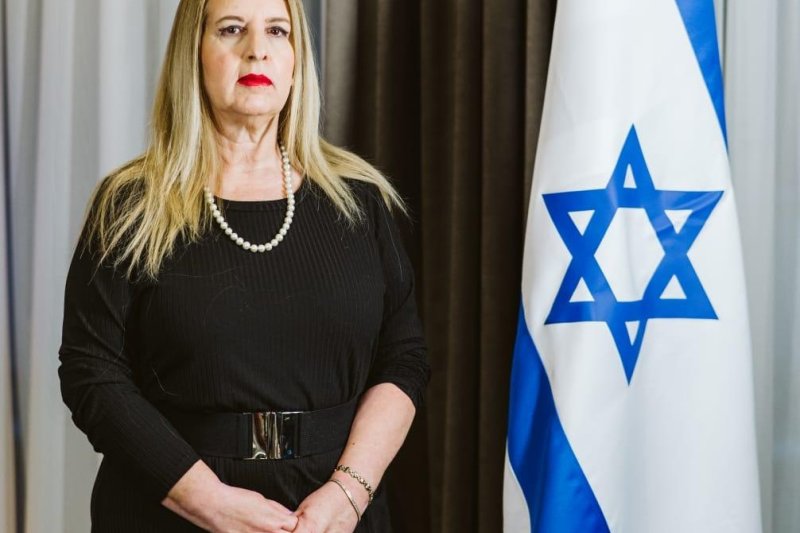The ICC as Another Casualty of October 7
In 1998, at the time of the adoption of the Statute of the International Criminal Court, the head of Israel's delegation, Judge Eli Nathan, expressed both hope and fear for its future. As a Holocaust survivor and lifelong humanitarian, he hoped that the Court would truly fulfill its role in ending impunity for the most serious crimes. But, having witnessed a troubling politicization of the Court's statute throughout the drafting negotiations, including the deliberate crafting of crimes intended to target Israel, he feared that the Court's goals would be perverted for political ends. Even as he explained that Israel could regrettably not accede to such a politicized statute, Nathan expressed the hope that good sense would prevail and the Court would "serve the lofty objectives for the attainment of which it is being established."
Some quarter of a century later, it seems clear that it is Judge Nathan's fears and not his hopes that have been realized. Far from ending impunity for serious crimes, the announcement by the Court's Prosecutor that he is pursuing arrest warrants for Israel's Prime Minister and Defense Minister alongside the leaders of Hamas is a perverse gift to the terrorist organization. It creates an obscene equivalence between the murderers and rapists of October 7, and the victims defending themselves from Hamas which has sworn to commit such massacres "again and again". Indeed, the Prosecutor has gone beyond equivalence, directing the charge of intentionally directing attacks against a civilian population at Israel, but not at Hamas, which beyond the massacres of October 7 has continued to fire thousands of missiles at Israel since.
The Prosecutor's announcement also ignores a key principle of the Court's Statute – complementarity. This provides that the Court can only have jurisdiction when local courts are unable or unwilling to act. Hamas, it is clear, has no intention of investigating its own atrocities. To the contrary, it sees every civilian casualty - Palestinian as well as Israeli - as a perverse success. Israel, on the other hand, has a rigorous legal system that has proven itself willing and able to investigate and prosecute violations of international law.
In fact, Israel's commitment to maintaining the rule of law was praised by the Prosecutor himself when he visited Israel after the October massacre. He noted that “Israel has trained lawyers who advise commanders and a robust system intended to ensure compliance with international humanitarian law.”
The alleged crimes too reflect a disconnection from reality. The Prosecutor charges Israel with the deliberate starvation of Gazans through the imposition of a 'total siege'. He makes no reference to the half a million tons of food and aid delivered on close to 20,000 trucks, even as Hamas continues to fire missiles at Israel and to steal aid and supplies from the Palestinians for whom it is intended.
It is hard to avoid the impression that it was to paper over these discrepancies that the Prosecutor sought to bolster his decision by referring the evidence to a panel of 'impartial experts'. The Court insists that the witness statements and expert evidence that were transferred are "confidential", but if they were selected according to the same criteria as the expert panel that raises serious cause for concern.
The "impartial" panel includes numerous members who have already gone on record making judgmental allegations against Israel. More troubling, though, is their fields of expertise. Many are touted as human rights lawyers, but there is scarcely any familiarity with the laws of armed conflict. The result is a panel that can opine on the impact of Israeli measures on Palestinians, but not engage in the critical task of deliberating with military expertise what is necessary and permissible in defense against continued rocket attacks and the brutal holding of hostages. Were such expertise to be included in the panel it would present a very different perspective, such as that of John Spencer, Head of the Center for Urban Warfare Studies at the Modern War Institute at West Point:
“I've never known an army to take such measures to attend to the enemy's civilian population, especially while simultaneously combating the enemy in the very same buildings. In fact, by my analysis, Israel has implemented more precautions to prevent civilian harm than any military in history.”
The Prosecutor's request has still to be approved by a three-judge Pre-trial Chamber. In the past, the Chamber has rubber-stamped the Prosecutor's applications, but in this case it is to be hoped that it will save the Court from itself.
At the ICC Conference in 1998, Judge Eli Nathan gave voice to his worst fear for the Court, that it would become "just one more political forum to be abused for political ends by an irresponsible group of states, at their political whim." Tragically, the Prosecutor has just brought that sad prediction one step closer. / ADN
*Ms Galit Peleg is the Ambassador of Israel to Albania













